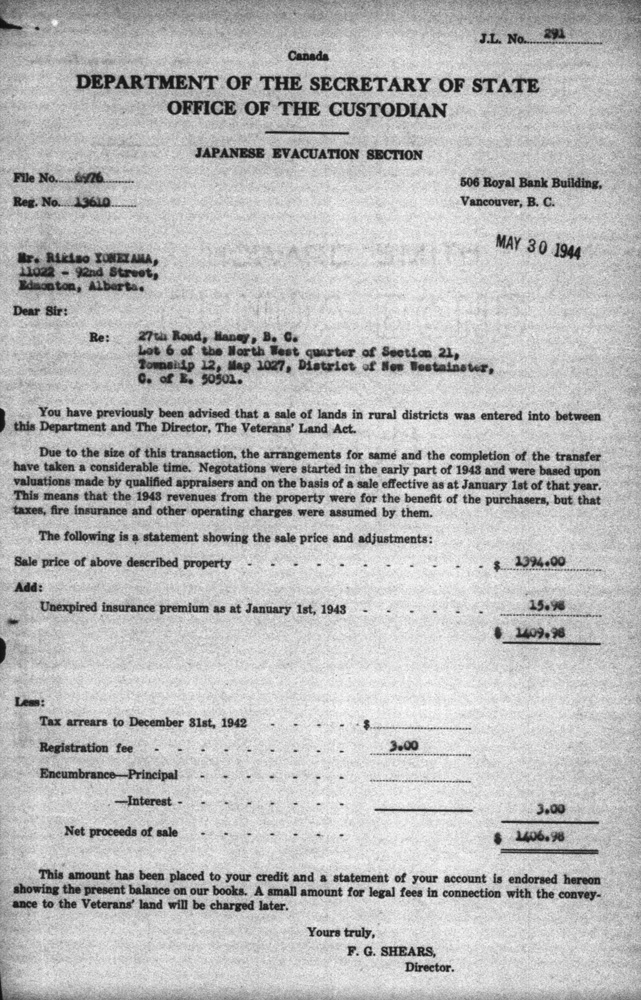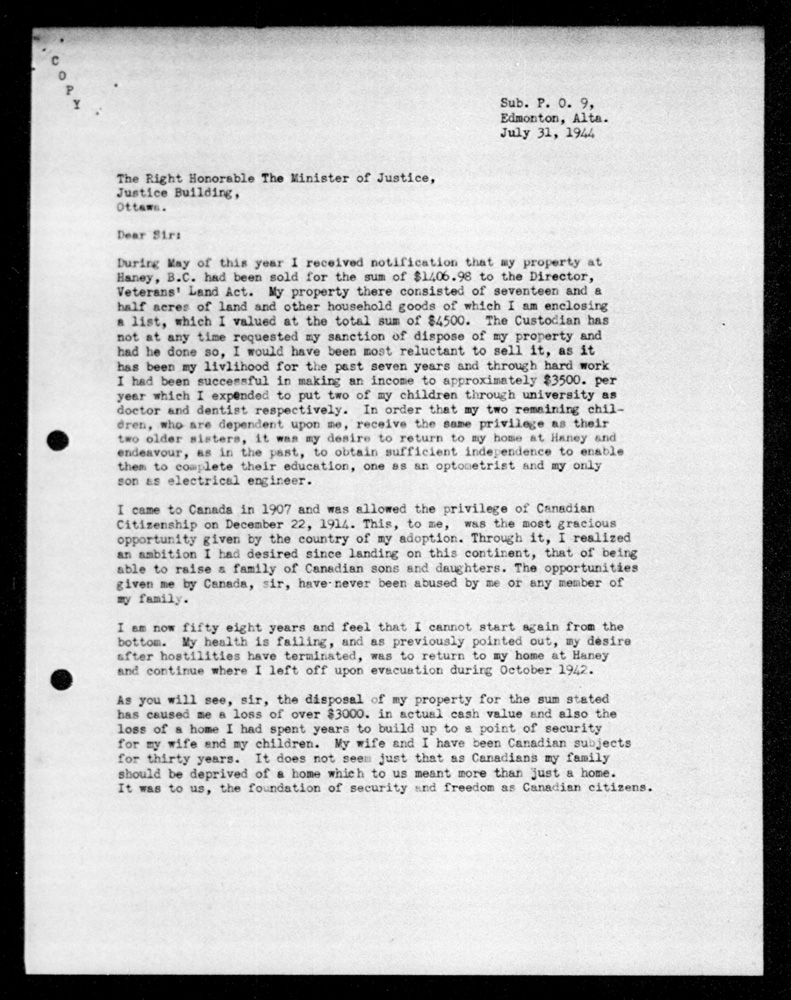The Meaning of Home

Rikizo Yoneyama came to Canada in 1907 with little more than his hopes. Like many newcomers from Japan, he dreamt of one day owning property and starting a family. He found work at a sawmill and later a pharmacy. He diligently saved his earnings.
A decade later, Yoneyama achieved his dream. He bought a farm of 7.5 acres in Haney, British Columbia. He dug a well and was soon able to raise chickens and pigs and to cultivate berries, apples, pears, and plums. On the busy farm Yoneyama and his wife, Yone, raised four children.
In 1942, Japanese Canadians were banned from Canada’s west coast. Yoneyama and his family reluctantly left their farm. His two eldest daughters were training in medicine and dentistry in Edmonton, Alberta. Yoneyama and the rest of the family joined them there.
Yoneyama hoped one day to return home. “I realize that we are the victims of a war emergency,” he wrote to government officials. “As such,” his family was “quite willing to undergo … hardship … to help safeguard the shores of our homeland.” Yoneyama asked “to return to my home … when the present emergency ends.”
Instead, Yoneyama soon received notice that his property had been sold for far less than it was worth. He sent a letter of protest to the minister of Justice. He was now too old, he said, to “start again.” His children depended on him. Their home, he said, was “more than just a home.” It provided his family with a “foundation of security and freedom as Canadian citizens.”
The appeal was denied. Yoneyama and his family were forced to rebuild their lives from almost nothing.
 Library and Archives Canada, RG117-C-3, C-9370, file 6976
Library and Archives Canada, RG117-C-3, C-9370, file 6976
 Library and Archives Canada, RG117-C-3, reel C9476, image 1448-1449
Library and Archives Canada, RG117-C-3, reel C9476, image 1448-1449
